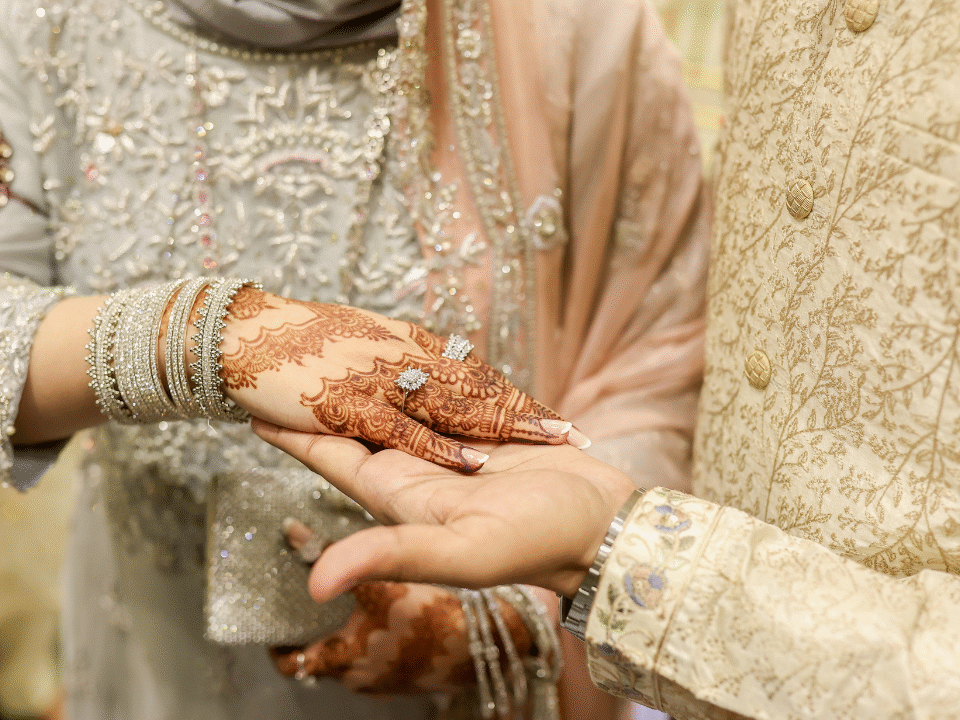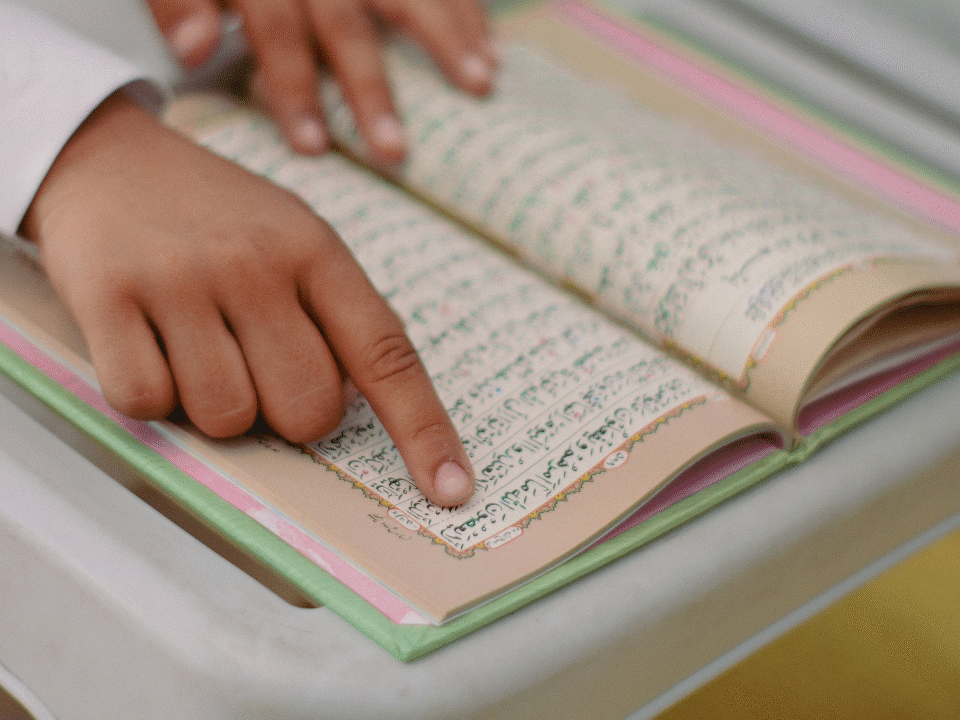Why Many Women Face PCOD Today — An Islamic Perspective on Causes and Remedies
Polycystic Ovarian Disease (PCOD), often known interchangeably with Polycystic Ovary Syndrome (PCOS), has become one of the most common health challenges facing Muslim women today. Many women experience irregular menstrual cycles, weight gain, hormonal imbalance, stress, acne, fertility issues, and emotional struggles as part of this condition. While modern science offers extensive explanations for the rise of PCOD, the Islamic perspective provides a deeper spiritual, emotional, and holistic understanding of this illness.
For a platform like Quran, where Islamic guidance and practical well-being intersect, addressing PCOD through both scientific and spiritual lenses is essential. This article explores why PCOD is increasing, what Islam teaches about women’s health, and how Islamic remedies, duas, and prophetic teachings can complement medical treatment.
Understanding PCOD: What Actually Happens in the Body?
PCOD is not a single disease but rather a collection of symptoms resulting from a hormonal imbalance. In PCOD:
The ovaries produce excess androgens (male hormones).
Eggs remain underdeveloped, forming multiple cysts.
Insulin resistance becomes common, affecting metabolism.
Menstrual cycles become irregular or stop entirely.
Weight gain, acne, facial hair, and fatigue often occur.
Emotional symptoms like anxiety and mood changes become more intense.
PCOD affects the entire body, not just the reproductive system—this is why it requires a holistic approach that includes the mind, body, and soul.
Why Is PCOD Increasing in Modern Women?
A) Lifestyle-Related Causes
The rise of PCOD is closely linked to lifestyle changes that are drastically different from the habits encouraged in Islamic teachings.
1. Poor Nutrition and Processed Foods
Excessive sugar, fried items, preservatives, fast food, and low-nutrient diets disrupt insulin and hormone levels. Processed foods were unheard of in the time of the Prophet ﷺ, who encouraged simple, pure, wholesome eating.
2. Lack of Physical Activity
Islam encourages physical fitness—archery, horse riding, swimming, and walking. However, modern sedentary lifestyles weaken metabolism, increase insulin resistance, and directly contribute to PCOD.
3. Chronic Stress
Stress increases cortisol (the stress hormone), which disturbs female hormones. Many women today are emotionally overwhelmed due to work, family pressure, or social comparison—deeply impacting their health.
4. Environmental Toxins
Chemicals in plastics, cosmetics, and food packaging affect hormonal systems in ways science is only beginning to understand.
B) Islamic Perspective on the Rise of Illnesses
Islam teaches that the human body is an amanah (trust) from Allah. When habits become distant from the Sunnah—whether in food, sleep, worship, emotional balance, or lifestyle—illness often follows.
1. Neglecting the Body
The Prophet ﷺ said:
“Your body has a right over you.”
Islamic teachings promote moderation, balance, and care for health. Overeating, lack of movement, and emotional unrest disturb the natural balance of the body.
2. Testing Through Illness
Some illnesses occur as a test to raise one’s rank in the sight of Allah. Patience (sabr), gratitude (shukr), and trust in Allah (tawakkul) become powerful sources of healing.
3. Spiritual Disconnection
When the heart is distant from Allah, emotional stress increases, and inner peace decreases. Emotional distress is scientifically proven to worsen hormonal disorders—including PCOD.
Women’s Health in Islam: Dignity, Respect, and Care
Islam places great emphasis on the physical and emotional well-being of women. Menstruation, pregnancy, and hormonal functions are treated with deep respect in the Qur’an and Sunnah.
A) The Qur’an acknowledges physiological realities
Allah says:
“He created you in stages.”
This includes the constant hormonal changes women experience.
B) The Prophet ﷺ encouraged treatment
He said:
“Seek treatment, O servants of Allah.”
This means a Muslim woman should never feel ashamed or discouraged from seeking medical help.
C) Emotional well-being is a form of worship
Islam encourages calmness, hope, trust in Allah, and avoiding unnecessary stress. Mental peace directly influences hormonal health.
Islamic and Spiritual Causes That May Contribute to PCOD
While PCOD is primarily medical, Islam teaches that emotional and spiritual factors impact physical health:
1. Stress and Lack of Inner Peace
Dhikr, Quran recitation, and dua bring tranquility, which in turn helps regulate the body’s hormones.
2. Neglecting Sunnah Habits
Irregular sleep, overeating, skipping breakfast, and emotional imbalance contradict prophetic teachings of discipline.
3. Weak Connection With Allah
A heart disconnected from its Creator is often filled with anxiety, which fuels hormonal imbalance.
4. Ignoring Natural and Halal Foods
Islam emphasizes pure, halal, and wholesome food. Today’s processed diets often do the opposite.
Islamic Remedies, Duas & Prophetic Guidance for PCOD
Islam encourages a combined approach: spiritual healing + medical treatment. Below are authentic and effective Islamic methods that support hormone health and emotional balance.
A) Duas for Healing
1. Dua for Shifa
“Allahumma rabban-naas, adhhib il-ba’sa, washfi anta ash-shaafi.”
(O Allah, Lord of mankind, remove the harm and heal, for You are the Healer.)
2. Ayat al-Shifa
Reciting the six Quranic verses of healing daily.
3. Dua of Prophet Yunus (A.S.)
“La ilaha illa Anta, Subhanaka, inni kuntu minaz-zalimeen.”
This brings emotional healing, peace, and relief from distress.
4. Surah Fatihah as Ruqyah
Read 7 times and blow on water; drink daily.
B) Wazifa for PCOD and Hormonal Balance
“Ya Shaafi, Ya Kaafi” — 300 times daily
Salawat (Durood) — 100 times
Astaghfirullah — 200 times
Consistency for 40 days brings emotional and physical improvement.
C) Sunnah Foods Beneficial for PCOD
1. Black Seed (Kalonji)
Prophet ﷺ said:
“Black seed is a cure for every disease except death.”
It helps regulate hormones and reduce inflammation.
2. Honey
A natural anti-inflammatory and helps strengthen the reproductive system.
3. Dates
High in fiber, nutrients, and natural sweetness; improves metabolism.
4. Olive Oil
Mentioned in the Qur’an; excellent for hormonal balance and insulin regulation.
5. Zamzam Water
Drink with intention of shifa; spiritually powerful and scientifically pure.
6. Fenugreek (Methi)
Balances blood sugar and reduces PCOD symptoms.
Medical and Lifestyle Remedies (Combined With Islamic Approach)
A) Balanced Diet
Increase:
Vegetables
Lean proteins
Whole grains
Fruits
Healthy fats
Reduce:Sugar
White flour
Fried foods
Soft drinks
Preservatives
B) Exercise
Daily 20–30 minutes of:
Walking
Yoga
Strength training
This improves insulin resistance.
C) Sleep Regulation
Prophetic recommendation:
Sleep early
Wake up early
Avoid late-night stress
This helps regulate female hormones naturally.
D) Medical Treatment
Doctors may recommend:
Metformin
Hormonal medicines
Supplements
Fertility treatment (if needed)
Islam encourages seeking beneficial treatment.
The Role of Quraan.pk in Women’s Wellness
As a platform dedicated to Islamic content, Quraan.pk plays a significant role by:
Providing Islamic articles on women’s health
Offering dua guides, Quranic healing, and spiritual tips
Sharing Sunnah-based lifestyle recommendations
Helping women gain knowledge with dignity and faith
Creating awareness about PCOD, hormonal health, emotional well-being, and self-care in Islam
Quraan.pk can empower women by reminding them that healing is both a journey of the body and the soul.
Read More: Haram aur Halal Rizq – Pocket Money, Online Earning aur Freelance ka Hukm
Conclusion
PCOD is indeed increasing in today’s world, but it is not a hopeless condition. Islam teaches us that the body is a trust from Allah and must be cared for with balance, moderation, and gratitude. With a combination of:
medical treatment
healthy lifestyle
dua
dhikr
Qur’anic healing
Sunnah-based nutrition
a woman can find remarkable improvement in her physical and emotional health.
Illness is not a punishment—it is a reminder of our fragility, a call to reconnect with Allah, and an opportunity for spiritual elevation.
May Allah grant healing to all women suffering from PCOD and bless them with strength, peace, and complete shifa.
Ameen.




